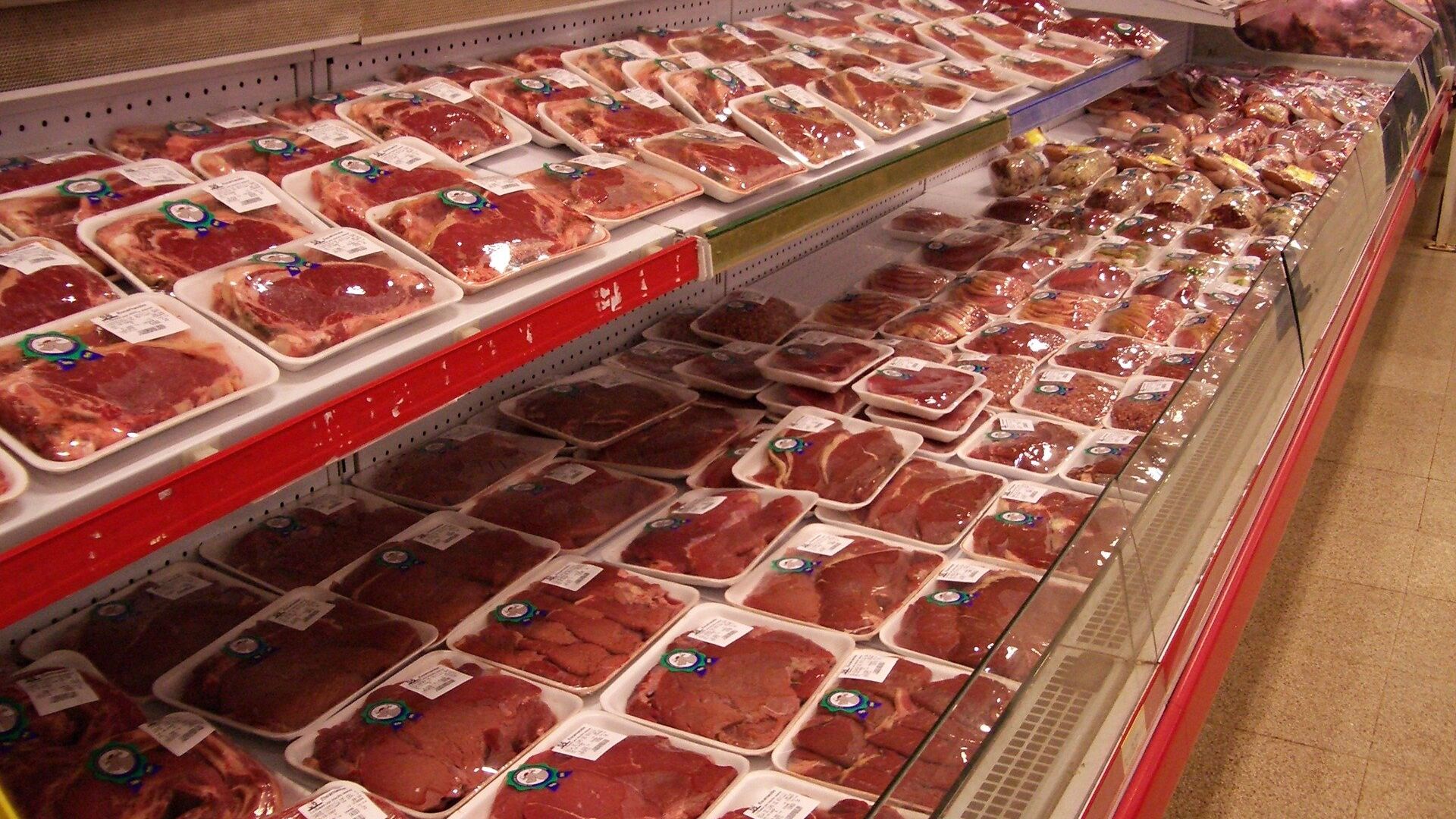https://sputnikglobe.com/20210813/worlds-largest-pork-exporter-under-fire-for-greenwashing-in-denmarks-first-climate-case-1083594098.html
World's Largest Pork Exporter Under Fire for 'Greenwashing' in Denmark's First Climate Case
World's Largest Pork Exporter Under Fire for 'Greenwashing' in Denmark's First Climate Case
Sputnik International
Danish Crown's claims to eco-fame have been questioned by ecologists and campaigners, who point out that the study, financed by the pork producer itself, had... 13.08.2021, Sputnik International
2021-08-13T06:16+0000
2021-08-13T06:16+0000
2021-08-13T06:16+0000
europe
world
newsfeed
denmark
scandinavia
pork
https://cdn1.img.sputnikglobe.com/img/106146/79/1061467955_0:180:1920:1260_1920x0_80_0_0_1de2db0d8f78a7bde7c046f99f018555.jpg
Danish Crown, the world’s largest pork exporter, has been embroiled in a “greenwashing” scandal, facing court action over exaggerated claims and shady marketing amid dubious research in Denmark's first climate case.In particular, ecologists have taken issue with Danish Crown's self-label as “the world’s most sustainable and successful meat producer” and claims that its bacon comes from “climate-controlled pigs”.The claims rest on a study by Aarhus University, one of Denmark's leading institutions of higher learning, financed by Danish Crown itself. Among others, the study claims that Danish farmers have already reduced the carbon footprint of pork sold by Danish Crown by 25 percent since 2005 and aim to hit 50 percent by 2030.However, as pointed out by the Vegetarian Society of Denmark, the Climate Movement and the Green Student Movement, which have lodged a joint complaint with the Danish Consumer Ombudsman, the Aarhus study failed to include emissions caused by indirect land use, such as the land used for producing fodder for the pigs. According to the campaigners, the misleading claims muddy up the entire debate about climate responsibility and are tantamount to “greenwashing”.As life cycle expert Jannick Schmidt of Aalborg University pointed out to The Copenhagen Post, indirect land use can account for up to 50 percent of the climate footprint of food production. Omitting it therefore creates a false impression of carbon emission. Denmark is one of Europe's most agriculturally cultivated countries. Around two-thirds of its agricultural land (65 percent) is used to grow fodder for farmed animals.Rune-Christoffer Dragsdahl of the Vegetarian Society said he hoped the lawsuit will discourage other meat companies from launching similar greenwashing campaigns. He called the fact that Denmark’s first climate lawsuit involves a meat company “very fitting”, emphasising that animal agriculture keeps getting a “special treatment”.Incidentally, Aarhus University has been embroiled in a similar before, this time involving beef production. In 2019, it withdrew a study about the climate impact of beef when an investigation found that Danish Crown and Landbrug & Fødevarer, a Danish agricultural industry group, had influenced and co-written the report.
https://sputnikglobe.com/20210810/greta-thunberg-blasts-fashion-industry-as-she-appears-on-vogue-cover-1083567722.html
denmark
scandinavia
Sputnik International
feedback@sputniknews.com
+74956456601
MIA „Rossiya Segodnya“
2021
News
en_EN
Sputnik International
feedback@sputniknews.com
+74956456601
MIA „Rossiya Segodnya“
Sputnik International
feedback@sputniknews.com
+74956456601
MIA „Rossiya Segodnya“
europe, newsfeed, denmark, scandinavia, pork
europe, newsfeed, denmark, scandinavia, pork
World's Largest Pork Exporter Under Fire for 'Greenwashing' in Denmark's First Climate Case
Danish Crown's claims to eco-fame have been questioned by ecologists and campaigners, who point out that the study, financed by the pork producer itself, had failed to include indirect emissions, which in the case of meat production are numerous.
Danish Crown, the world’s largest pork exporter, has been embroiled in a “greenwashing” scandal, facing court action over exaggerated claims and shady marketing amid dubious research in Denmark's first climate case.
In particular, ecologists have taken issue with Danish Crown's self-label as “the world’s most sustainable and successful meat producer” and claims that its bacon comes from “climate-controlled pigs”.
The claims rest on a study by Aarhus University, one of Denmark's leading institutions of higher learning, financed by Danish Crown itself. Among others, the study claims that Danish farmers have already reduced the carbon footprint of pork sold by Danish Crown by 25 percent since 2005 and aim to hit 50 percent by 2030.

10 August 2021, 04:49 GMT
However, as pointed out by the Vegetarian Society of Denmark, the Climate Movement and the Green Student Movement, which have lodged a joint complaint with the Danish Consumer Ombudsman, the Aarhus study failed to include emissions caused by indirect land use, such as the land used for producing fodder for the pigs.
According to the campaigners, the misleading claims muddy up the entire debate about climate responsibility and are tantamount to “greenwashing”.
As life cycle expert Jannick Schmidt of Aalborg University pointed out to The Copenhagen Post, indirect land use can account for up to 50 percent of the climate footprint of food production. Omitting it therefore creates a false impression of carbon emission. Denmark is one of Europe's most agriculturally cultivated countries. Around two-thirds of its agricultural land (65 percent) is used to grow fodder for farmed animals.
Rune-Christoffer Dragsdahl of the Vegetarian Society said he hoped the lawsuit will discourage other meat companies from launching similar
greenwashing campaigns. He called the fact that Denmark’s first climate lawsuit involves a meat company “very fitting”, emphasising that animal agriculture keeps getting a “special treatment”.
Incidentally, Aarhus University has been embroiled in a similar before, this time involving beef production. In 2019, it withdrew a study about the climate impact of beef when an investigation found that Danish Crown and Landbrug & Fødevarer, a Danish agricultural industry group, had influenced and co-written the report.



